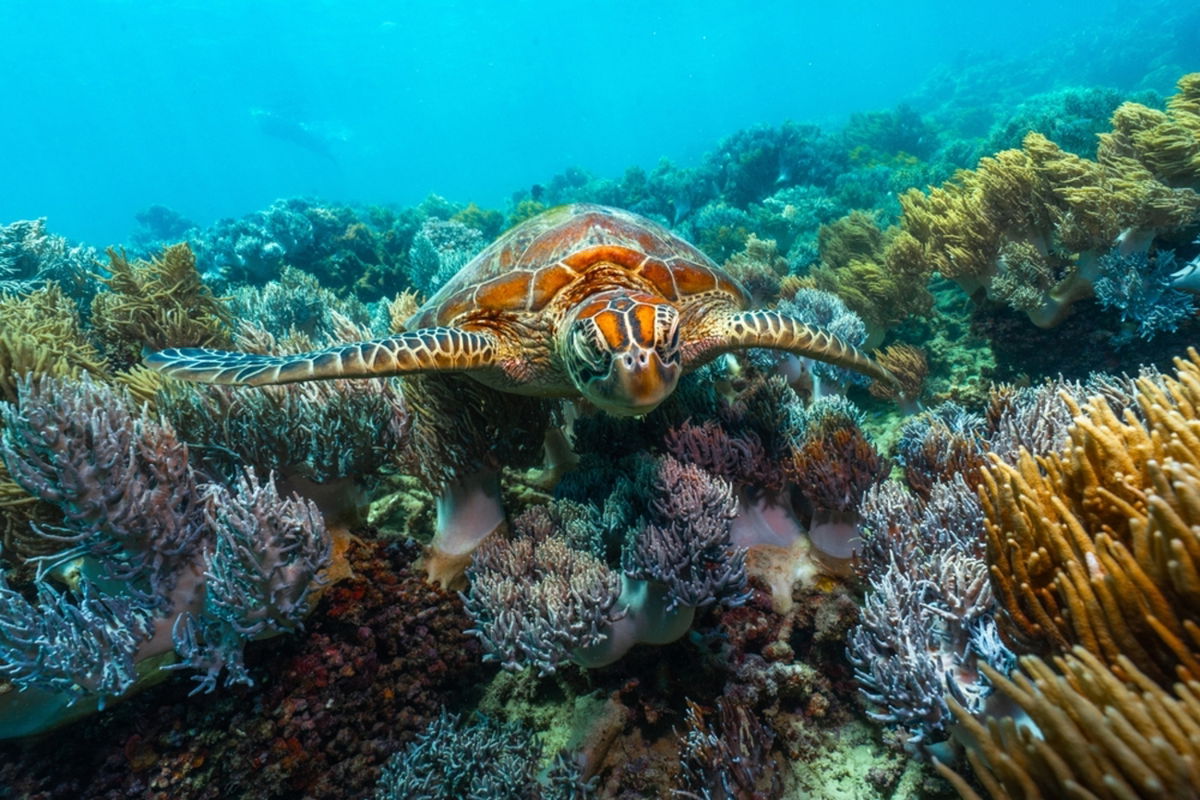There may be hope for the Great Barrier Reef amid the climate crisis. Credit: phmarcosborsatto, Shutterstock.
The Great Barrier Reef stretches 2,300 kilometers along the Queensland coast and has been severely affected by climate change for many years.
For years we have been told that the Great Barrier Reef is dying. The Great Barrier Reef is a jewel of the earth, bleached, broken and fading by unrelenting heat and pollution.
But new research from the University of Queensland has revealed something rare in the climate change story: real, measurable hope.
Key facts about Hope on the Great Barrier Reef
- Researchers from the University of Queensland (UQ) and the Australian Institute of Marine Science (AIMS) are deciphering the genetics of corals on Heron Island.
- The genomes of approximately 6,000 corals have been sequenced. This is a globally significant effort to understand heat resistance.
- Visually identical but genetically distinct ‘cryptic’ coral species may hold the key to coral reef survival.
- This work supports Australia’s Reef Restoration and Adaptation Program (RRAP), a national coral recovery initiative.
Meanwhile, the bad news is that, according to the UNEP Emissions Gap Report 2025, global emissions will reach 57.7GtCO₂e in 2024, putting the world on track for up to 2.8°C of warming, far exceeding the 1.5°C target set by the Paris Agreement. If left unchecked, it is a death sentence for the coral ecosystem.
How studying coral gene pools can increase survival rates
Dr. Line Bey from AIMS vividly described the research: “To the naked eye, corals look like colorful rocks, but they are incredibly complex animals. They are both surprising and frustrating.”
At the heart of the research is UQ researcher Zoe Mezieres. He began his fascination with coral reefs as a child in Guadeloupe.
Now working at the Heron Island Research Station, she uncovers the secrets of DNA that separate survivors from victims.
“Some corals that look the same are as genetically different as humans and Neanderthals,” she says. “If you use the wrong species to restore a reef, the reef may not be able to regenerate, or worse, it may outcompete native corals.”
Her research shows that understanding coral genetics is a survival science.
Professor Cynthia Riginos, who leads coral genetics research across UQ and AIMS, said matching coral species to the right environment was critical to successful restoration.
“If you try to restore an area that has species that are mismatched with the site, they will probably die,” she said.
Through RRAP, researchers are building a genetic “toolkit” to guide the coral’s seeding and adaptation efforts, effectively equipping the reef with a new type of immune system.
By combining genetics, ecology, and restoration science, they are creating a roadmap for coral reefs in a warming world.
The reality of the climate crisis
Despite these breakthroughs, the broader climate situation remains challenging.
UNEP’s 2025 Emissions Gap Report warns that global temperatures will exceed 1.5°C within the next decade, beyond which bleaching events will become increasingly devastating.
The report emphasizes that “every fraction of a degree matters,” with every 0.1°C increase in temperature increasing the risk of tipping points and irreversible damage to coral ecosystems. Still, scientists haven’t given up.
UQ’s Professor Peter Munby, a member of the RRAP steering committee, says collaboration is the reef’s best defense.
“UQ and AIMS have worked together for many years and RRAP has given us the structure to combine genetics, ecology and restoration into one mission,” he said.
More than just a tourist destination, the Great Barrier Reef is a global indicator of the health of our planet. Its destiny reflects our destiny. When coral reefs die, it heralds a climate future from which no one can escape.
The University of Queensland and AIMS will continue to collaborate under the RRAP to use genetic mapping to guide the recovery of corals in heat-damaged areas.
Scientists believe that if emissions can be curbed to keep global warming below 2 degrees Celsius, some coral reefs could begin to recover naturally within a few decades. This is a small but significant sign of hope.
Check out world news.








